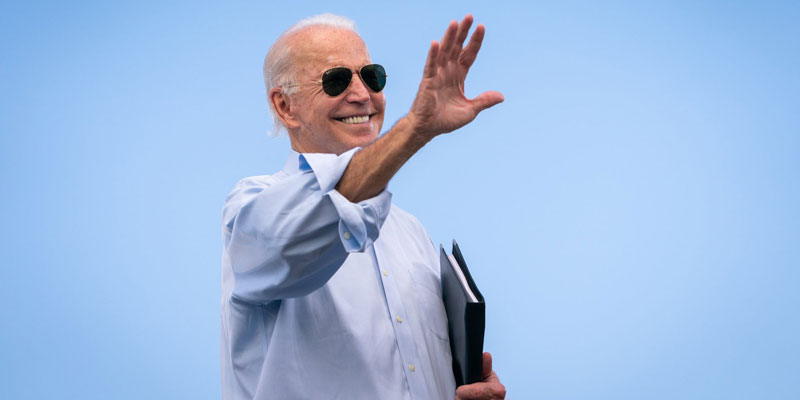Biden administration looks to implement anti-jobs tax agenda

This is the second installment of a two-part blog series on the Biden administration’s burgeoning fiscal policy. You can read the first part here.
President Joe Biden’s 2020 campaign platform was far to the left, but many Americans did not take it seriously given his anodyne career in the Senate. The conventional wisdom is (or used to be) that his dirigisme campaign manifesto was merely a way of appeasing the Bernie Sanders crowd.
But Americans now realize that the White House is serious about imposing that agenda. A $1.9 trillion spending plan has already been enacted, and there are other big multi-trillion initiatives in the pipeline (infrastructure, Medicare expansion, Green New Deal, etc.).
Some of this spending, such as the just-adopted “American Rescue Plan,” is financed entirely with debt. But the White House realizes there’s a limit to that approach, so it’s proposing several tax increases.
The immediate battle is over proposals to fund (or partially fund) the administration’s so-called infrastructure plan. Here are the two major tax increases the president wants to use to finance a major expansion in the size and scope of government (only a tiny slice of the package is actually for roads).
Raising the central government’s corporate tax rate to 28 per cent
The biggest fiscal achievement of the Trump years was reducing the federal government’s corporate tax rate from 35 per cent to 21 per cent. Biden wants to wipe out half of that gain by pushing the rate back up to 28 per cent. Combined with state corporate taxes, the United States will once again have one of the highest business tax burdens among developed countries.
Moreover, the U.S. imposes a second layer of tax on the same income when it’s distributed to shareholders—and Biden wants to raise that tax rate as well (though later in the year, not as part of the supposed infrastructure plan). The combination of those tax increases would saddle American businesses with the highest tax rate on profits in the developed world.
What makes the step so disappointing is that even pro-tax bureaucracies such as the Organization for Economic Cooperation and Development (OECD) agree with the consensus viewpoint that corporate taxes are one of the most economically harmful ways of generating tax revenue.
Imposing a minimum 21 per cent tax rate on global earnings of American companies
The U.S. traditionally has imposed an unfriendly tax regime on American-domiciled multinationals, most notably with an aggressive form of worldwide taxation (meaning U.S.-based companies with foreign-source income get taxed both where that income is earned and by the IRS). Prior to the Trump tax cuts, companies at least had “deferral,” a provision in the tax code, which gave them some ability to postpone the second layer of tax imposed by the IRS.
Trump’s reforms created a new regime for multinationals, which moved toward territorial taxation (the commonsense notion of only taxing income earned inside national borders), but also included a global minimum tax of about 11 per cent on some types of foreign-source income. The overall legislation was favorable for U.S.-based firms, but the minimum tax was not necessarily good news for companies with a lot of business in lower-tax jurisdictions such as Bermuda and the Cayman Islands. But the low rate made the system reasonably competitive.
The bad news is that Biden basically wants to double the global minimum tax to 21 per cent. But since most other countries have business tax regimes based on territorial taxation, this will hinder the ability of American companies to compete for market share when doing business overseas.
In addition to the two aforementioned provisions, the Biden administration has also proposed to “eliminate tax preferences” for fossil fuels, but it’s not clear what that means since the White House has not actually identified any such provisions.
There’s also aggressive language about working with other governments to “end the race to the bottom” by curtailing tax competition, which Treasury Secretary Janet Yellen has been emphasizing in public remarks. This is basically the American version of the campaign to create a global tax cartel, which has been the long-held dream of international bureaucracies such as the OECD.
The White House’s high-tax agenda is a recipe for slower growth and less prosperity. To make matters worse, this plan to increase the tax burden on businesses will soon be followed by a plan to increase tax rates on households. And with the Biden administration proposing massive expansions of government spending, even further tax increases are very likely.

